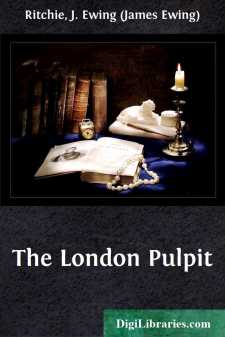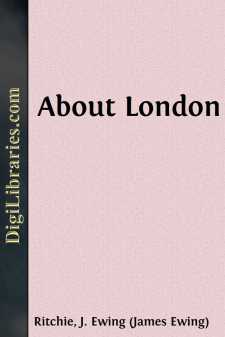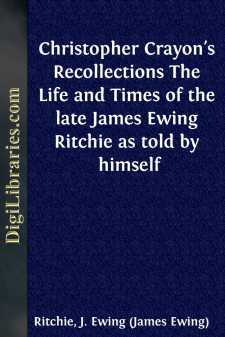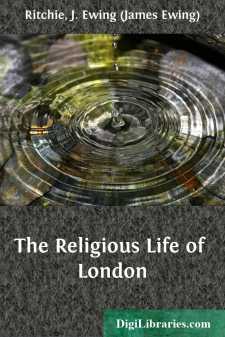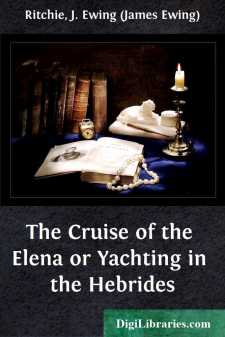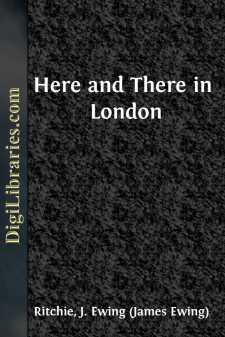Categories
- Antiques & Collectibles 13
- Architecture 36
- Art 48
- Bibles 22
- Biography & Autobiography 813
- Body, Mind & Spirit 142
- Business & Economics 28
- Children's Books 14
- Children's Fiction 11
- Computers 4
- Cooking 94
- Crafts & Hobbies 4
- Drama 346
- Education 46
- Family & Relationships 57
- Fiction 11829
- Games 19
- Gardening 17
- Health & Fitness 34
- History 1377
- House & Home 1
- Humor 147
- Juvenile Fiction 1873
- Juvenile Nonfiction 202
- Language Arts & Disciplines 88
- Law 16
- Literary Collections 686
- Literary Criticism 179
- Mathematics 13
- Medical 41
- Music 40
- Nature 179
- Non-Classifiable 1768
- Performing Arts 7
- Periodicals 1453
- Philosophy 64
- Photography 2
- Poetry 896
- Political Science 203
- Psychology 42
- Reference 154
- Religion 513
- Science 126
- Self-Help 84
- Social Science 81
- Sports & Recreation 34
- Study Aids 3
- Technology & Engineering 59
- Transportation 23
- Travel 463
- True Crime 29
The London Pulpit
Description:
Excerpt
the
RELIGIOUS DENOMINATIONS
of london.
‘Homo sum, humani nihil a me alienum puto,’ said Terence, and the sentence has been a motto for man these many years. To the human what deep interest attaches! A splendid landscape soon palls unless it has its hero. We tire of the monotonous prairie till we learn that man, with his hopes and fears, has been there; and the barrenest country becomes dear to us if it come to us with the record of manly struggle and womanly love. This is as it should be, for
‘The proper study of mankind is man.’
In pursuance with this axiom, we have devoted some little time to the study of one section of modern men deservedly worthy of serious regard. There is no subject on which men feel more intensely than they do on the subject of religion. There are no influences more permanent or powerful in their effects on the national character than religious influences. We propose, then, to consider the pulpit power of London. There are in our midst, men devoted to a sacred calling—men who, though in the world, are not of it—who profess more than others to realise the splendours and the terrors of the world to come—to whom Deity has mysteriously made known his will. Society accepts their pretensions, for, after all, man is a religious animal, and, with Bacon, would rather believe all the fables in the Koran than that this universe were without a God. For good or bad these men have a tremendous power. The orator from the pulpit has always an advantage over the orator who merely speaks from the public platform. Glorious Queen Bess understood this, and accordingly ‘tuned her pulpit,’ as she termed it, when she sought to win over the popular mind. We deem ourselves on a level with the platform orator. He is but one of us—flesh of our flesh, and bone of our bone. The preacher is in a different category: he in his study, we in the rude bustle of the world; he communing with the Invisible and Eternal, we flushed and fevered by the passing tumult of the day; he on the mount, we in the valley, where we stifle for want of purer air, crying in our agony,
‘The world is too much with us; late or soon,
Getting or spending, we lay waste our powers.’
We feel the disparity—that there ought to be an advantage on the preacher’s side—that there must be fearful blame somewhere, if his life be no better than that of other men.
Before we begin our subject, we will get hold of a few facts and figures. According to the very valuable Report of Horace Mann on Religious Worship, it appears that there are, in England and Wales, 10,398,013 persons able to be present at one time in buildings for religious worship, and that, for the accommodation of such, 34,467 places of worship have been erected, leaving an additional supply of 1,644,734 sittings necessary, if all who could attend places of worship were disposed to do so, the actual accommodation being 8,753,279 sittings. In reality, however, the supply more than keeps pace with the demand. ‘Returning,’ says Mr....


